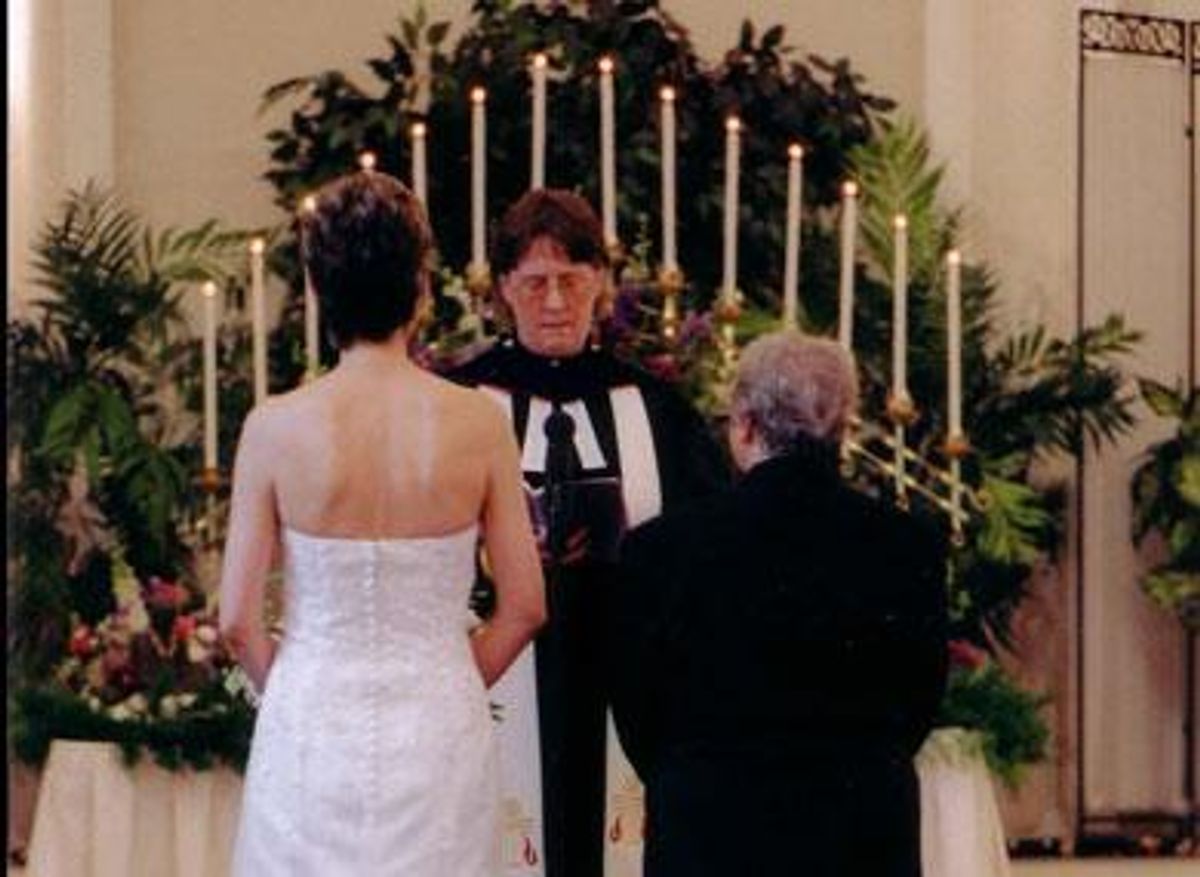Voices
Hug an Evangelical This Christmas

By continuing to use our site, you agree to our Private Policy and Terms of Use.

Will marriage for same-sex couples be sanctioned in our lifetimes? What will it take to eliminate hate crimes against LGBT people?
As a Presbyterian minister, a lifelong liberal, and someone who cares deeply about social justice, I asked myself these questions as I prepared to preside at a marriage ceremony for two women in 2005.
It is true the tide has shifted toward acceptance of LGBT people as equal members of society. But one need look no further than the string of defeats at the ballot box to understand just how far we have to go.
The conventional wisdom tells us that to win, we should focus all our resources on getting out the progressive vote and solidifying the support of social moderates because the hearts and minds of evangelical Christians are unwinnable. I believe it's time we dispensed with the conventional wisdom.
The fact is, we remain a country where 77% of our citizens identify as Christian. Shifting public perception on any issue requires engaging them. Evangelical Christians carry significant weight with many Christians across most denominations on this issue. For this reason, I believe the tipping point for LGBT equality will come when evangelical Christians recognize our common humanity -- that we are all equal in the eyes of God.
Easier said than done? There's no denying that LGBT people have suffered greatly from the hurtful words and actions of some within the evangelical Christian community. There will likely always be religious hard-liners who won't budge from their convictions. Yet change is possible for many.
Recently, Newsweek published a first-person essay by an evangelical Christian
named Brent Childers who described his transition from a
self-described former "bigot" to attending the National Equality March
in Washington, D.C. For Brent, the turning point came when he met Elke
Kennedy, a mother whose 20-year-old son, Sean, was killed by a man who
called him a "faggot."
"I will never forget that momentary look on her face when I explained
to her that I once was someone whose attitude had helped perpetuate the
societal climate in which her son lived and died," Childers recounts.
"It is a moment that commands me to continue to march, to speak out,
and help others experience the spiritual blessing that comes from
unshackling the chains of religion-based bigotry and prejudice."
It can be painful, it requires risk, but when we open ourselves up to sharing our lives and experiences, the walls of prejudice begin to crack and crumble.
An evangelical in my church changed his views on LGBT people when he volunteered side by side with gay and lesbian people in his community in the aftermath of 9/11.
Then there's the Reverend Jack McKinney, a married father of two who leads a Baptist congregation in North Carolina where LGBT Baptists are welcomed and their relationships are blessed.
Our lives are filled with stories like these, where the simple act of reaching out and connecting can move mountains.
It takes courage to live an out life as an LGBT person, and it takes courage to initiate a conversation with someone whom we perceive as predisposed to reject us. But we do ourselves and our cause a disservice by disparaging people of faith or keeping them at arm's length. If we do not extend a hand, they will never have a chance to get to know us.
So how do we come together to share our stories?
I would look for the place where our values converge. Volunteerism has always been a deeply rooted value in both LGBT and evangelical communities. I recently returned from a visit to New Orleans, where my organization, More Light Presbyterians, which advocates for LGBT acceptance within the church, and Presbyterian Disaster Assistance worked together to rebuild homes in a city still struggling from the effects of Hurricane Katrina. Other opportunities like this exist, from Habitat for Humanity to the local soup kitchen in your community.
If one of the first important steps in an LGBT person's life is to come out, the critical step now is to reach out. When we own the responsibility of helping Christians see us for who we are, we move one step closer to the tipping point of human understanding, acceptance, and equality.
Want more breaking equality news & trending entertainment stories?
Check out our NEW 24/7 streaming service: the Advocate Channel!
Download the Advocate Channel App for your mobile phone and your favorite streaming device!
